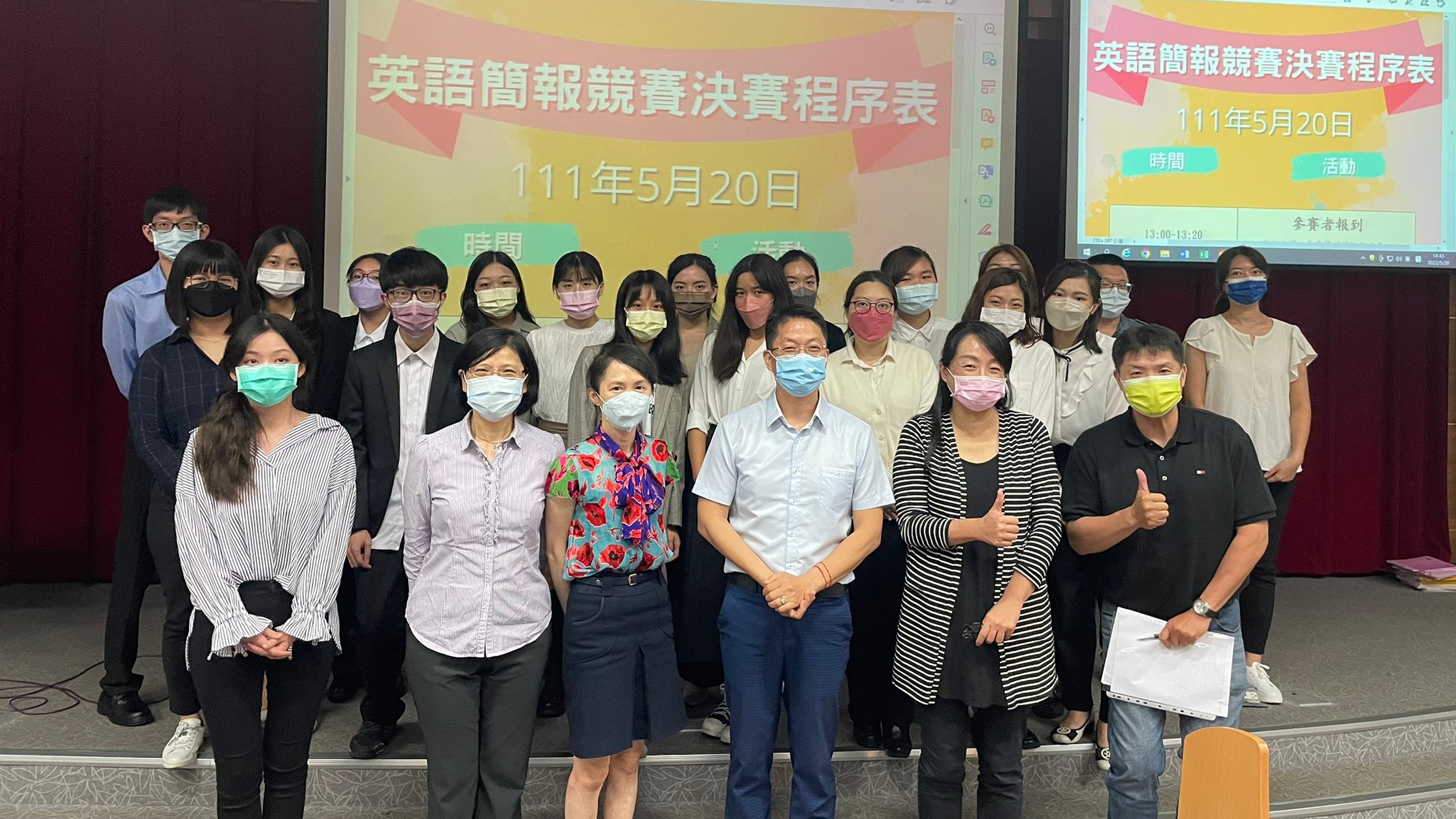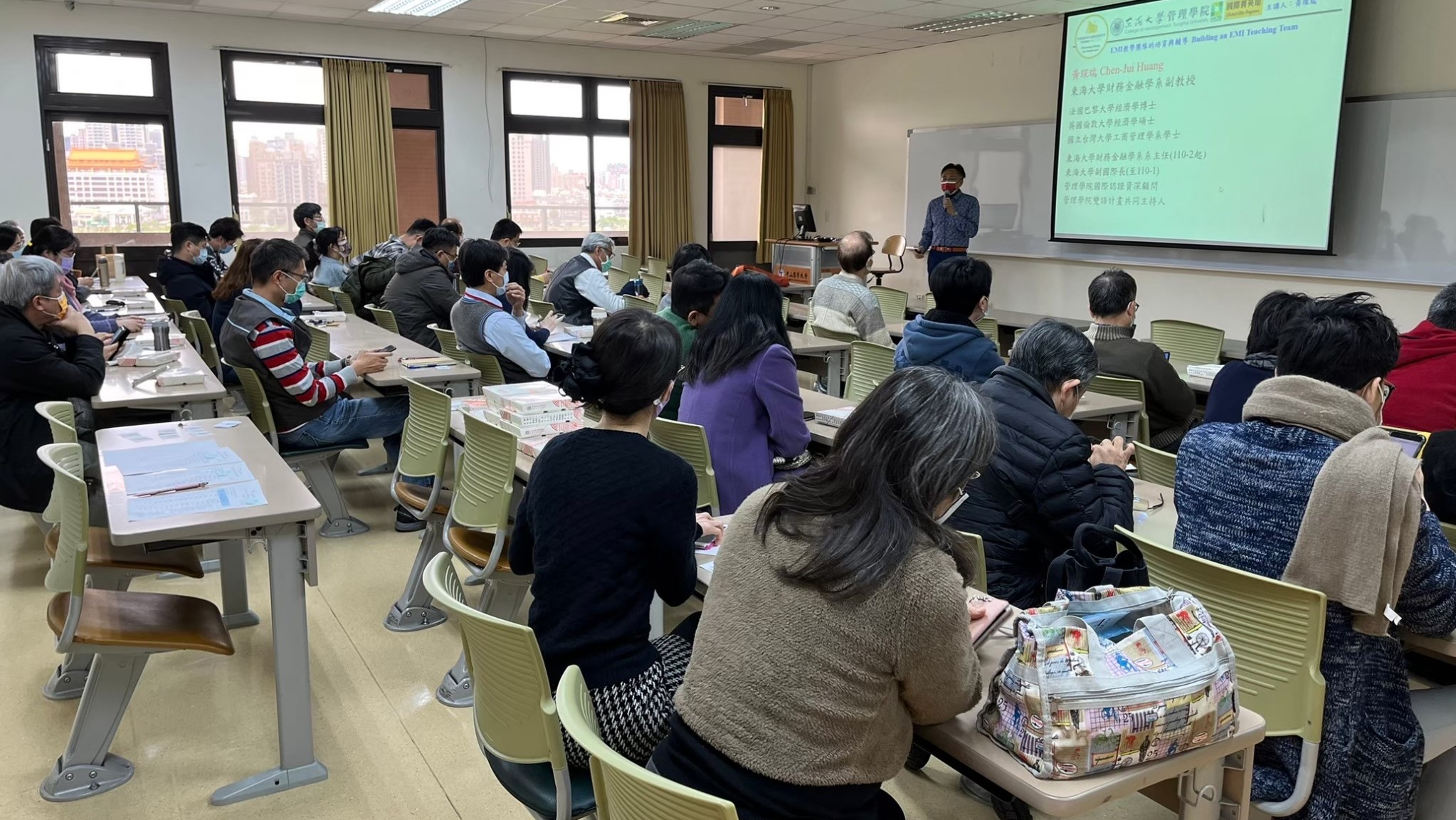Abstract
- Summary of the Plan Self-Evaluation
As a medical university, in light of the rapid progress of knowledge in the medical field and the fact that English is the main communication language in the medical field, we take a positive and open attitude towards the implementation of EMI and encourage the participation of the whole school in a gradual way. The first semester of the 2021 academic year is primarily focused on teacher training. Then, the next semester will be taught in English with the curriculum as the principal axis. Strengthening students’ language communication abilities and attaching importance to doctor-patient communication are our central ideas in medical education. We hope to promote students’ English abilities effectively, which is also a key point of the continuous promotion of school development.
A. Strategies to Improve Students’ English Proficiency
- Organizational Aspects: The university-level “Bilingual Teaching Promotion Resource Center” and the “EMI Course Promotion and Advisory Committee” were established, with the Vice-President as the Director of the Center and the Dean for Academic Affairs as the Associate Director. We will make an all-out effort to promote bilingual education, strengthen the all-English lessons, educate teachers, formulate incentives for students and teachers, use funds, coordinate cross-unit administrative systems, and call EMI meetings so that the implementation of our EMI program can achieve the short-term goals on schedule and continue to achieve the medium-term and long-term goals.
- Teacher Aspects: We educate and certify EMI teachers, establish a teacher community to educate seeded teachers, calculate 1.5 times the teaching hourly fee, provide incentives, set up teacher workshops, and invite external experts to give lectures to assist teachers in improving their skills and quality of teaching in English.
- Student Aspects: In order to enhance students’ English ability, learning effectiveness and interest, we encourage students to study EMI courses enthusiastically, hold all-English competitions such as English Presentation Competitions and Group English Poster Competitions, create intensive learning tutoring courses such as English Learning Corner and Short-Term English Courses, and provide incentives to the students who have perfect attendance in EMI courses and achieve the top 50% of the class in the semester.
- Course Aspects: In the second semester of the 2021 academic year, two online courses were offered in cooperation with Andrews University in the United States, including Operation Management and Special Topics in Health Economics, and the professors at Andrews University taught face-to-face synchronously online. The intramural teachers set up four courses, including Introduction to CAD/CAM & Digital Dentistry and Practicum, International Social Work, International Health and Health Advocacy, and Travel and Communication. In order to improve the quality and quantity of EMI courses, we lowered the threshold for the number of students and offered courses in each college and department in the 2022 academic year.
- Resource Aspects: We cooperated with our partner university-Andrews University in the United States, for online courses and teacher certification, and introduced online teaching materials from Duquesne University in the United States to strengthen the teaching content of the all-English course and educate teachers. In addition, domestic experts and scholars from colleges and universities are invited to attend workshops, lectures, and communities held by our school online. We can not only integrate resources but also share and exchange resources so as to improve the quality of teachers’ teaching.
B. Strategies to Establish an Intramural EMI Teaching and Support System:
- Online Professional Courses: Cooperate with Andrews University to introduce online professional courses and teach online with intramural teachers.
- EMI Teaching Workshop: We organize the bilingual education energization workshops “Bilingual Teaching is Not Difficult” and “The Ultimate Guide to Teaching in English.” Experts and scholars are invited to exchange experiences with our teachers to adjust the teaching skills of EMI courses and improve students’ learning effectiveness.
- EMI Teacher Training: We purchased “Cambridge English: Certificate in EMI Skills—Self-Access Online Course”, which is provided to seeded teachers and teachers who are willing to join. A total of 53 teachers participated in online self-study bilingual teaching training courses, and 21 teachers were certified. On top of that, we sent 13 teachers’ teaching videos to Andrews University for teacher certification assessment, and 11 teachers passed it.
- Promote the Use of the College as a Curriculum and Support Unit: Seeded teachers from all departments will participate in training teacher certification and convey EMI-related messages to other teachers belonging to their departments. Besides, we encourage teachers from all departments to participate in the teaching workshops and lectures. In addition to the current six main promotion courses, each department was asked to offer one more EMI course in the second semester of the 2022 academic year. It is also planned that each department will introduce one course taught in both Chinese (CMI) and English (EMI) at the same time to increase the number of EMI courses.
C. Other Supporting Strategies:
- Our school has implemented the two major measures of “Measures for Improving English Proficiency for Students” and “Measures for Building an Intramural EMI Teaching and Support System” in terms of institutional strategy and management, teachers and teaching, students and learning, information disclosure, quality assurance, resource sharing, inter-school cooperation, and supporting measures.
In summary, by promoting the popularization and enhancement of bilingual learning, we can optimize the bilingual learning environment of our school. Apart from this, we strengthen the EMI teaching energy of teachers and the learning performance of students’ courses, promote cross-school cooperation, and integrate resources so as to achieve the comprehensive upgrading of the whole school’s English ability. We hope to cultivate outstanding talents with excellent international communication skills who can effectively sort out the problems related to medical and biomedical sciences and contribute to the development of the international competitiveness of national higher education.

